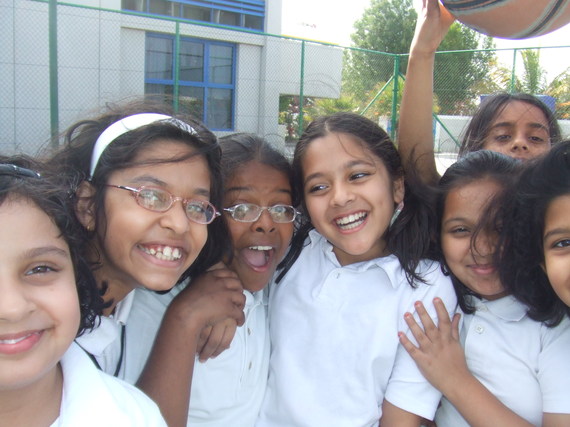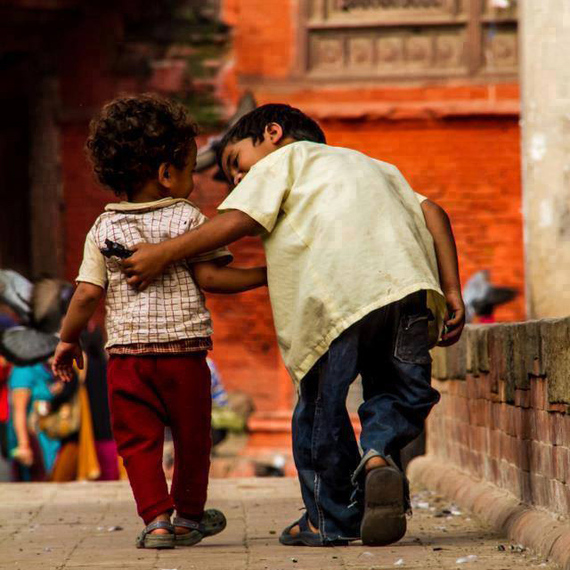21st century skills. Throughout the world, we are talking about 21st century skills as if these particular skills have found their place in this particular time in the evolution of humanity. For those less familiar, the skills I speak of include: communication, collaboration, critical thinking, problem solving, creativity, adaptability. There are more, but these are generally agreed upon as the skills required to navigate the waters of the 21st century. And they represent more than merely the skills required for this century. These are the essentials skills for any century - including the period currently in play.
After all, I doubt we would have been as effective at hunting and gathering without communication, collaboration. And critical thinking and problem solving certainly were on display during the civilizations of ancient Greece, Rome. Creativity found no better expression than during the Renaissance period and the Enlightenment. And the ability to adapt was a pre-requisite to discovery and expansion across the seas and over centuries.
So how is it we have arrived at these particular skills, abilities as current food for thought? Why so much attention paid to them at this time?
It has to do with the age upon which we find ourselves - the Information Age - and the age-old question, 'What is the purpose of education?'
There is a battle of epic proportion going on within the hallowed halls of learning today. It is between the value of knowledge and the application thereof. Education systems around the world are struggling to find their place within the spectrum. Knowledge is being consumed and then regurgitated on international comparative examinations in large quantities. The PISA tables are dominating policy discourse and, more importantly, reform efforts. This is as evident in the US as it is in Asia. And this perceived assault on greater intelligence has placed at risk our own humanity through the de-emphasizing of the Humanities themselves. This would be mildly amusing, the irony, if it were not devastating, the destiny of such activity.
As a global society, we have achieved unprecedented means of acquiring vast amounts of data, knowledge, information. The Information Age has ushered in such opportunity. Yet knowledge unto itself is a dead end, unless it is brought into functioning relationship with situations, circumstances, issues and events. Another way of putting it: knowledge without the effective bridging of such is as useful as adequate food supply without the adequate means - and requisite consciousness - for distribution to those in need. As ridiculous as it is real.
With these 21st century skills we are really speaking of the bridge-building skills and abilities required to put knowledge and information into working action, responsibly so. After all, what good is it to have a world of nearly eight billion people collecting knowledge if we have no sense - common or otherwise - of what to actually do with the knowledge once we have obtained it? The application of knowledge; there is an intelligence to this -- and an urgency.
Essential is the communication between those who share a home, a community; a planet.
Essential is the ability to collaborate, cooperate, to work together in formulating answers to the more critical questions raised by our co-existence.
Essential is the critical thinking that finds its genesis not in the demonstration through standardized examination, but in the fields made fertile by the variety within humanity - set free by nonconformity.
Essential is the problem solving that begins in the earliest years of living, and manifests more fully through the later years of learning, and doing - hopefully, through a more evolved consciousness.
Essential is the creativity that 'brings the infinite vastness of the unknown universe within range of the finite human mind.'
Essential is the ability to adapt to the changing landscape of this life experience, as we move from our limited self and perception to what lies in wait of a more inclusive and emancipating view.
Essential are these - and other - skills, abilities, demonstrations of an alignment with head and heart that may bring about change for society through the changing nature of each, and a greater version for all. And education must align itself to ensure that a healthy balance is achieved between the acquisition of basic skills and knowledge and those '21st century skills' that allow for its intelligent use.
And what may intelligent use of knowledge look like? It would look something like the Sustainable Development Goals established by the United Nations, developed and delivered through effective communication, collaboration, critical thinking, problem solving, creativity and adaptability by all members, and for a common good.
Knowledge - in action...
Intelligently so.
Critical to the future of humanity.
One might even say essential.
David Scott Clegg is the author of the award-winning novel The Longest Distance. He is the Managing Director of The HEAD Foundation, a global education think tank; and Founder of UNITE Education.



